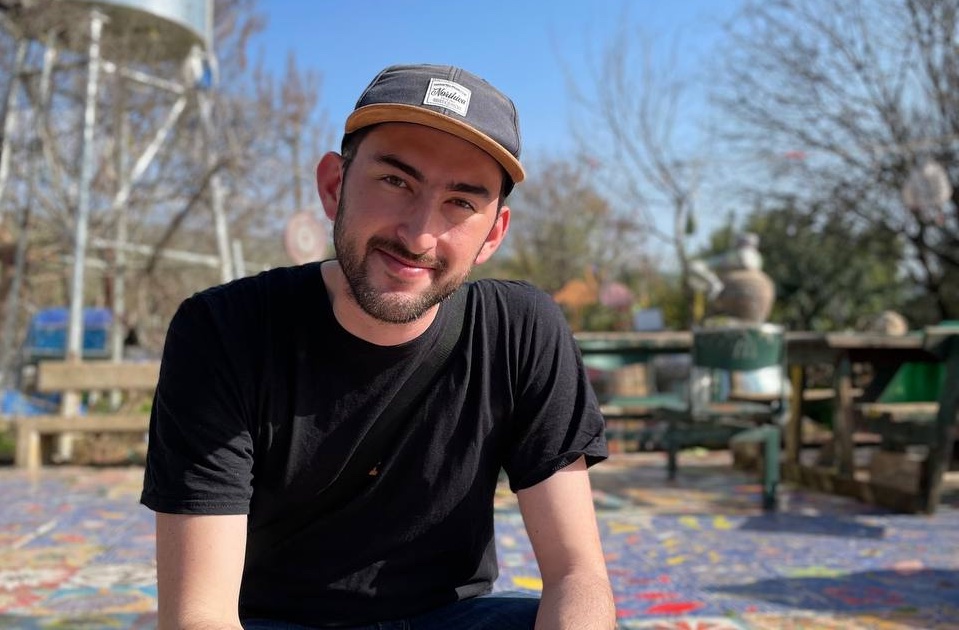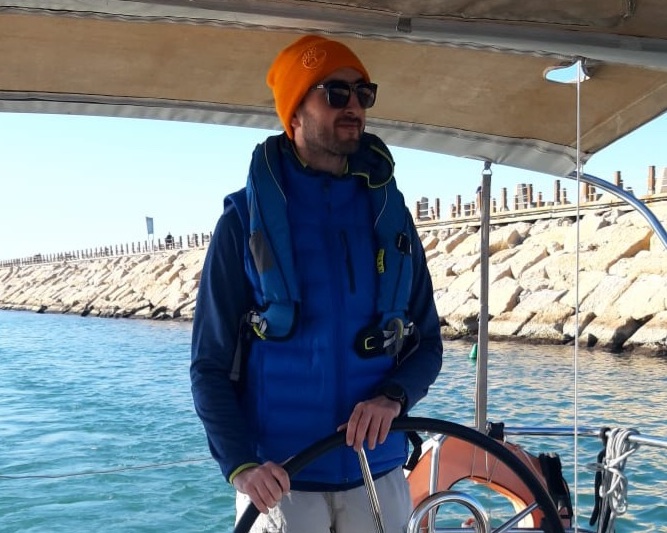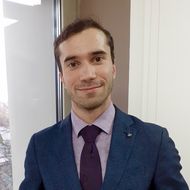- A
- A
- A
- ABC
- ABC
- ABC
- А
- А
- А
- А
- А
- HSE University
- Faculties
- Faculty of Economic Sciences
- School of Finance
- News
- ‘The Only Limit to Your Success is You’
-
The School
-
RESEARCH ACTIVITIES
- Laboratories
- Series “Advanced studies in emerging market’s finance” at Springer Nature o Networking with international academic associations
- Networking with international academic associations
- Research seminars
- International PhD workshop
- The International Seminar «ESG Transformation»
-
RESEARCH WORKING GROUPS
- Research Working Group "Innovations in the banking sector, its financial stability and prudential regulation"
- BUSINESS EDUCATION
- Networking with business associations
- Networking with professional associations
- Center for Research on Non-Financial Reporting
-
DATABASES
119049 Moscow, Russia
11 Pokrovskiy boulevard, room S629
Phone:
+7 (495) 772-95-90*27447, *27947, *27190
+7 (495) 916-88-08 (Master’s Programme Corporate Finance)
- Email: df@hse.ru
Head of Corporate Finance Research Center, Dr., tenured professor

+7495-772-95-90 (add. 27447)

+7495-772-95-90 (add. 27947)
The HSE School of Finance is the leading Russian competence center in the field of corporate finance, business valuation, banking, stock market, risk management and insurance, accounting and audit.
HSE is the first Russian university in the global ranking "QS - World University Rankings by subject", 2022 in the subject area of Accounting and Finance. Moreover, the university is the 1-st in the rating "THE World University Rankings by subject" in the subject area of Business & Management Studies, 2022
Cherkasova V. A., Nenuzhenko I.
Journal of Economic Integration. 2022. Vol. 37. No. 1. P. 54-92.
Electronic Journal of Applied Statistical Analysis. 2022. Vol. 15. No. 1. P. 187-210.
Kolade S. A., Semenova M.
Financial Economics. FE. Высшая школа экономики, 2022. No. WP BRP 87/FE/2022.
Управление финансовыми рисками. 2022. Т. 70. № 2. С. 108-120.
In bk.: The 8th International Conference on Information Technology and Quantitative Management (ITQM 2020 & 2021): Developing Global Digital Economy after COVID-19. Vol. 199: The 8th International Conference on Information Technology and Quantitative Management (ITQM 2020 & 2021): Developing Global Digital Economy after COVID-19. Manchester: Elsevier, 2022. P. 798-805.
Korablev D., Poduhovich D.
Journal of Corporate Finance Research. 2022. Vol. 16. No. 1. P. 136-145.
Olkhovik V., Lyutova O. I., Juchnevicius E.
Научно-исследовательский финансовый институт. Финансовый журнал. 2022. Vol. 14. No. 2. P. 73-90.
Churyk N. T., Anna Vysotskaya, Kolk B. v.
Journal of Accounting Education. 2022. Vol. 58.
Абдрахманова Г. И., Васильковский С. А., Вишневский К. О. и др.
М.: Издательский дом ГУ-ВШЭ, 2022.
Абдрахманова Г. И., Васильковский С. А., Вишневский К. О. и др.
М.: Национальный исследовательский университет "Высшая школа экономики", 2022.
Гришунин С. В., Сулоева С. Б., Пищалкина И. И.
Организатор производства. 2022. Т. 30. № 1. С. 60-72.
Гришунин С. В., Сулоева С. Б., Пищалкина И. И.
Экономический анализ: теория и практика. 2022. Т. 21. № 3. С. 478-496.
S. Grishunin, E. Naumova, N. Lukshina et al.
Russian Management Journal. 2021. Vol. 19. No. 4. P. 475-493.
Journal of Corporate Finance Research. 2022. Vol. 16. No. 1. P. 99-112.
Grishunin S., Bukreeva Alesya, Alyona A.
In bk.: The 8th International Conference on Information Technology and Quantitative Management (ITQM 2020 & 2021): Developing Global Digital Economy after COVID-19. Vol. 199: The 8th International Conference on Information Technology and Quantitative Management (ITQM 2020 & 2021): Developing Global Digital Economy after COVID-19. Manchester: Elsevier, 2022. P. 190-197.
 International Conference “Future Directions in Accounting and Finance Education”, 27-28 May 2019, Moscow, Russia
International Conference “Future Directions in Accounting and Finance Education”, 27-28 May 2019, Moscow, Russia
Edited by: А. Б. Высотская, B. v. Kolk.
Vol. 58. Elsevier, 2022.
Karamysheva M., Seregina E.
Journal of International Money and Finance. 2022. Vol. 127.
In press
Journal of Economic Dynamics and Control. 2022. Vol. 137.
Karamysheva M., Skrobotov A.
Journal of Economic Dynamics and Control. 2022. Vol. 138.
Известия Санкт-Петербургского государственного экономического университета. 2022. № 4. С. 144-155.
Тихомиров Д. В., Цехомский Н. В.
Экономика и управление. 2022. Т. 28. № 1. С. 16-24.
Селезнёва З. В., Евдокимова М. С.
Финансы: теория и практика. 2022. Т. 26. № 3. С. 64-84.
Evdokimova M., Stepanova A. N.
In bk.: 38th EBES Conference - Program and Abstract Book. Istanbul: EBES, 2022. P. 39.
Assanskiy A., Shaposhnikov D., Tylkin I. et al.
Journal of Behavioral and Experimental Economics. 2022. Vol. 98.
Teplova T., Mikova E., Munir Q. et al.
Economic Change and Restructuring. 2023. Vol. 56. No. 1. P. 515-535.
Повх К. С., Кокорева М. С., Степанова А. Н.
Экономический журнал Высшей школы экономики. 2022. Т. 26. № 1. С. 9-36.
Anton Markov, Zinaida Seleznyova, Victor Lapshin.
Journal of Finance and Data Science. 2022. Vol. 8. P. 180-201.

‘The Only Limit to Your Success is You’

Gleb Zinkovsky graduated from ICEF with a bachelor’s degree in 2014, before working as an Associate for PwC (Cyprus) and E&Y (Moscow). After completing the Yandex Praktikum training course, Gleb went on to work in the fintech field. He now works at Jasper (Israel) as a Product Analyst. In his interview, Gleb tells us what it’s like to begin a career in tax consultancy, move on to business analytics, and eventually end up in product analytics.
Gleb Zinkovsky
My First Acquaintance with HSE University
My father graduated from HSE University and is currently running one of its master’s programmes. Unsurprisingly, my choice of university was largely influenced by my father. When I was about 10 years old, I was brought to an Open Day. That was my first acquaintance with HSE University. I had studied at a physics and mathematics school and I wanted to continue studying mathematics, but not abstract math. Economics came to my rescue. Plus, I could study it at a progressive, dynamically evolving university whose spirit I’d grown up with. I first took preparatory courses, then won a prize position in an Olympiad, so I had an opportunity for fast-track admission on a state-funded place in the HSE University Faculty of Economic Sciences.
However, shortly before admission, I went to the ICEF Open Day and learned that I could study for a double bachelor’s degree in English with HSE University and the University of London (UK). Dad said, ‘If you understand why you need it, go for ICEF.’
The year my studies began, Jeffrey Lockshin was teaching at ICEF.
In retrospect, I can say that my BA studies at ICEF were the coolest years of my life
ICEF was the ultimate expression of the HSE spirit of freedom, an open attitude to ideas, and the highest respect for student initiatives. After enrolling in HSE University, students begin to understand how valuable the time their professors spend on them is, and that ICEF teaches them something more than just economics. Students here are taught to learn, to think, and to adapt to new challenges.
In my first year, my main goals were to learn to think in English and to prioritise tasks correctly so that I could pass all my end of-year exams on the first try. Despite choosing to major in Economics and Finance in my second year, I had decided to change my major to Banking and Finance by my fourth year. This was after an internship at the HSE Innovation Centre, when I realised that I needed to fully master investment-related subjects for my future work both in consultancy and financial analytics.
My interest in how international corporations and their finances work largely determined the trajectory of my development and my work on my course papers and my diploma, which I wrote under the supervision of Maria Kokoreva. This acquaintance and fruitful cooperation was helpful not only for my studies, but also for my further professional career.
Consultancy and Working Abroad
By the end of my studies at ICEF, I knew that I wanted to work in consultancy. One of the places I applied to was the Moscow office of PwC. It turned out they were recruiting for an office in Cyprus—so I was presented with a unique opportunity to work in an interesting field abroad. In 2014, I found myself in strategic tax consultancy, where my main tasks were to optimise the tax functions of international corporations doing business in various countries across the globe. I utilised a lot of the knowledge I gained while studying at ICEF, but had to apply it in a completely new way.
Everything from basic economics to corporate finance and accounting came in handy
We never studied tax at ICEF, so my work in Cyprus was an interesting continuation of my studies. I learned how real businesses structure themselves for optimum performance, how corporate cash flows are organised, and most importantly, why taxes are so important for any company operating today. In 2014 the deoffshorisation of the Russian economy was beginning and this area of consultancy was booming, with a wide variety of projects both in terms of the volume of work and their complexity. We were constantly analysing the latest trends in tax and corporate legislation in Cyprus, Russia, and other countries where clients' businesses were located.
The Thrill of Work as a Lifestyle
In 2016, I moved back to Moscow and continued working in corporate tax consultancy in Ernst & Young's Global Compliance & Reporting team. The whole team had a kind of enjoyable addiction to the frenetic pace of working to get results—you see how much you can do both on you own and as part of a team in the shortest possible time.

Like many of my colleagues in the Big Four, I eventually decided to move into business, delve deeper into my niche, and combine my personal interests with my ambitions. I made some friends at Yandex who showed me what product analytics and management were all about. As it turned out, it was just as dynamic and exciting in its complexity as consultancy. In 2018, I made the decision to leave E&Y and pursue a career in business analytics.
Moving on to Fintech
In 2018, I landed an internship at I Know First, an Israeli fintech start-up that specialises in forecasting financial markets using machine learning and artificial intelligence. My academic background in finance and my varied work experience with well-known global companies such as PwC and E&Y played a big role in the range of tasks I undertook.
I had an internship as a business analyst, forecasting the share price of companies that traded on global exchanges and explaining my views in articles. Afterwards, I was offered the position of senior business analyst. Due to the small size of the start-up, my functions expanded rapidly, and I had to pick up various new skills I didn’t need before. These included using the Python and R languages and arranging and setting up the company’s business processes, from product design to selling products to the end user online.
My ICEF background really helped me master new skills—if I didn’t know how to do something, I just sat down and learned how to do it
I left I Know First in July 2021 and started a new position the very next day, which is very much in the spirit of the Big Four.
By that time, I knew that I wanted to specialise in financial technology, with a focus on product analytics and management in the near future. I realised this while doing the Yandex Praktikum training course, which I started when I was still doing my previous job. I worked a lot on my analytical skills and managed to build up a good project portfolio. This helped me pass a lot of job interviews and significantly expanded my choice of positions. Even so, my main focus was Israeli fintech and banking companies. That’s how I started working as a data analyst in the product team at Jasper, which specialises in banking services in the USA.
A Flexible Mind is a Key to Success
ICEF has changed its approach to teaching, and programmes now include computer programming and machine learning. I envy the current students. However, my ICEF financial background gave me both fundamental academic training and self-study skills.
There is close interaction between ICEF students and teachers, which provides many opportunities for self-realisation (including individual coursework and group projects within the disciplines studied). Discussions with fellow students and teachers—most of whom have worked in the industry—help to find answers to the most difficult questions, organise knowledge, and form a professional approach to work. It is not surprising that many ICEP graduates end up with passion for consultancy, as this is the kind of mindset that the field requires.
In Israel, there is the concept of ‘chutzpah’, when someone has an ambition for success that borders on impudence, a burning desire to achieve something. They unwittingly teach this at ICEF; the only limit to achieving success is you. My course mates knew what they wanted, they studied at their own pace, and they found their own styles of gaining and using knowledge. ICEF teaches students freedom, and this is the most important outcome of studying. This drive extends from their interest in finance to their ability to persevere in the field they love. ICEF graduates love what they do because they see results and they know the value of their knowledge and time.
In my opinion, it is relatively easy for ICEF graduates to change their professional field from finance to product management or other related fields. This is because they have learned how to be flexible and efficient and learn new things quickly—much to other people’s amazement. If an ICEP student asked me what helped me get from A to B, I would say it was my flexible mind and curiosity, because I have never in my life not wanted to learn something new.
Maria S. Kokoreva
Associate Professor, School of Finance
- About
- About
- Key Figures & Facts
- Faculties & Departments
- International Partnerships
- Faculty & Staff
- HSE Buildings
- Public Enquiries
- Studies
- Admissions
- Programme Catalogue
- Undergraduate
- Graduate
- Exchange Programmes
- Summer University
- Summer Schools
- Semester in Moscow
- Business Internship
-
https://elearning.hse.ru/en/mooc/
Massive Open Online Courses
-
https://www.hse.ru/en/visual/
HSE Site for the Visually Impaired
-
http://5top100.com/
Russian Academic Excellence Project 5-100
- © HSE University 1993–2024 Contacts Copyright Privacy Policy Site Map
- Edit


